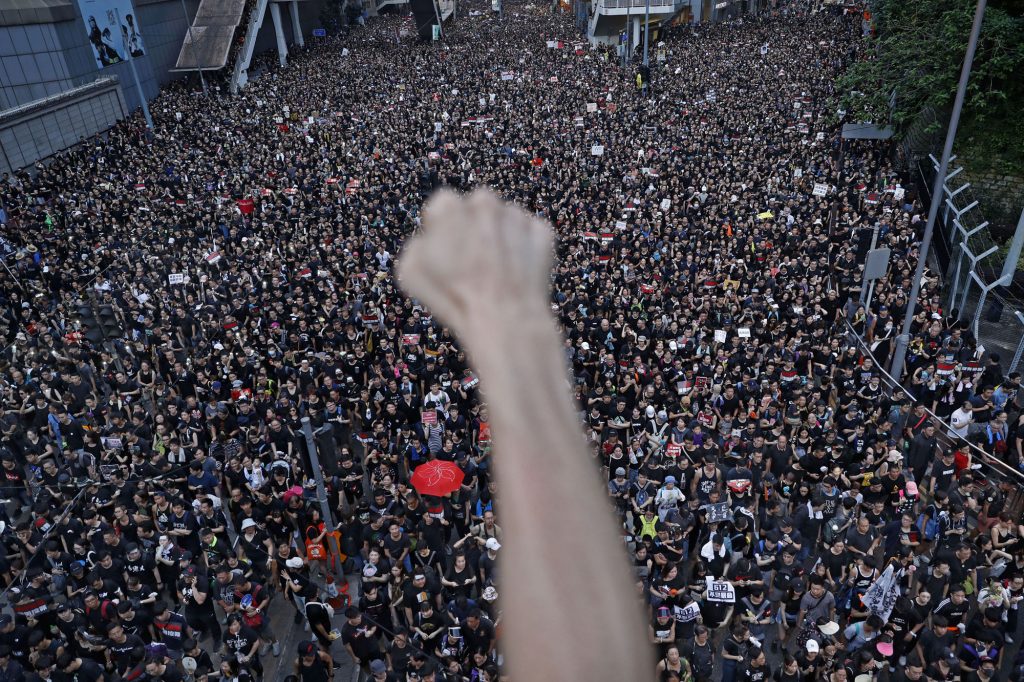Dhanada K Mishra
China is one of the oldest civilisations of the world, with beautiful traditions such as that of Confucius and Lao-Tse. China also became the cradle of Buddhism, which came from India and spread onward to all of Japan, Korea and Southeast Asia. All these traditions have much to teach us, especially in the present time to address the challenges faced on different levels ranging from the personal to humanity at large. Some of the best examples of the same can be seen in the actions of the likes of Mahatma Gandhi, Nelson Mandela and Martin Luther King Jr. Among them, Gandhi was perhaps the pioneer in the way he applied the age-old principles of truth and non-violence in his own life as well as in the struggle for India’s freedom from British colonial rule. As we celebrate the 150th anniversary of Gandhi’s birth, it may be pertinent to re-examine his relevance against the struggle for greater autonomy and democracy in Hong Kong.
For example, the famous Chinese dissident and Nobel laureate Liu Xiaobo during his trial in 2009 for “inciting subversion of state power”, wrote an essay, ‘I Have No Enemies’, in which he has stated: “[T]he mentality of enmity can poison a nation’s spirit, instigate brutal life and death struggles, destroy a society’s tolerance and humanity, and block a nation’s progress towards freedom and democracy.” He declared that he had no enemy, and no hatred towards anyone — even his tormentors. Hong Kong’s recent round of protests, which started with a non-violent march of millions of ordinary Hong Kongers, has now gotten mired in the daily running battles between the diminishing number of young radicalised protesters and a tired and edgy police force. The warnings of Liu can be seen in the way hatred for mainland Chinese or businesses supporting the government is making protesters increasingly carry out acts of violence and destruction, putting their original objectives in peril.
In Chinese culture, loss of face is taken very seriously. The Hong Kong government, and particularly those in power in Beijing, would not like to lose face and risk similar challenges in other parts of China
In a letter to a friend, Liu wrote in 2000: “The appearance of a martyr will completely change a nation’s soul and raise the spiritual quality of the people. But Gandhi was by chance, Havel was by chance; human progress relies on the chance birth of such individuals. One cannot count on the collective conscience of the masses but on the great individual conscience to consolidate the weak masses.”
The world seems to be increasingly lurching towards mass agitations in the face of growing uncertainties, inequalities and declining liberty and freedom. Can Hong Kong prove Liu wrong in showing the world that it doesn’t need a martyr or a great soul to show it the right path?
Gandhi, like the Buddha and Jesus Christ, relied on truth-force and strict non-violence as his most potent tools. In 1922, at the height of the Non-cooperation movement that caught the public’s imagination and it looked like the British rule may come to an end, Gandhi suddenly called an end to the agitation and went on an indefinite fast. The reason was an incident in a remote place called Chauri Chaura, where a small group of people had taken the law into their own hands. Police had fired upon the agitating public and the public retaliated by setting the police station on fire. Three civilians and 23 policemen died in the incident. While India would see independence only in 1947, the bloodshed avoided as a result of the Gandhian approach was certainly enormous.
In Hong Kong, the current agitation, as well as the one during the umbrella movement, have been largely peaceful and non-violent, winning much global approbation and support. In the earlier protests, young student agitators led by Joshua Wong had resorted to fasting as a form of protest. Even the current protests have seen hunger strikes by groups of senior citizens. Unfortunately, the government seems to have continually ignored the non-violent protests, while yielding ground in the face of violent agitations even while applying equally violent methods to suppress the protests. It has now reached a point where no form of peaceful protest is being given permission and when protesters gather in defiance, overwhelming and sometimes excessive force is being applied to deter them. This is a slippery slope that does not augur well either for the demonstrators or the society at large.
Gandhi believed strongly in giving his adversaries enough scope to correct wrong actions without having to lose face. Thus, he would often say that his opposition was against the British rule, not the British. As a result, India won its freedom without the rancour one would expect between the victors and the vanquished. In Chinese culture, loss of face is taken very seriously. The Hong Kong government, and particularly those in power in Beijing, would not like to lose face and risk similar challenges in other parts of China. Therefore, the young protesters would do well to stake out their legitimate claims for greater democracy and autonomy over the long-term rather than looking for immediate results. They have already won great concessions and should take stock and give the government space to concede further, especially on the contentious issue of police atrocity. The government, on the other hand, needs to provide space and respect to non-violent peaceful dissent, while working towards dialogue and perhaps a truth and reconciliation process just as the one that brought a divided South Africa together under Mandela after apartheid.
The writer holds a doctorate in civil engineering from the University of Michigan and is a professor in India. He is a founding member of the Extinction Rebellion in Hong Kong.
